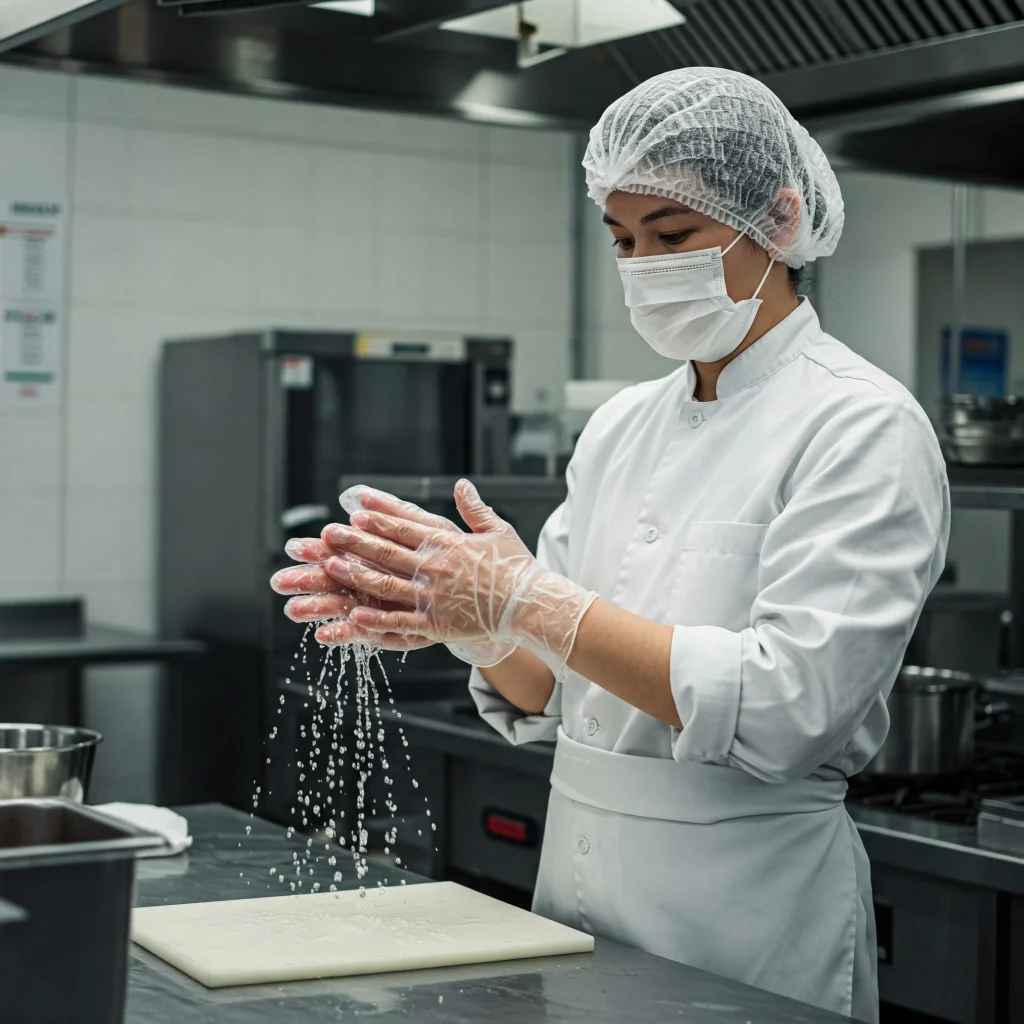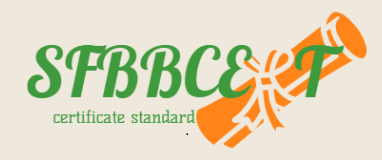
Personal hygiene for food handlers is a vital set of practices that you and your staff must follow when preparing and handling food. Anyone working in a food preparation or storage environment must maintain a high level of personal hygiene to ensure food safety.
Staff Uniforms Should Be:
Appropriate
Clean
Safe
When Preparing or Serving Food, Staff Must:
Tie back their hair and use appropriate head coverings, such as hats or hairnets
Avoid wearing jewelry, including watches or accessories
Refrain from touching their face or hair
Not smoke
Not spit
Avoid coughing or sneezing
Not eat food or chew gum
One of the key requirements under the SFBB standard is strict adherence to personal hygiene practices, which directly impact the hygiene of the restaurant and food safety.
For more detailed guidance, refer to the “Safe Food, Better Business (SFBB)” page for food business operators.
Hand Washing
Washing hands is essential in food preparation to prevent the spread of harmful bacteria. All staff involved in handling and preparing food must wash their hands at the following times:
Upon entering the kitchen or food preparation area
Before preparing food
After handling raw food
After touching garbage or emptying bins
After cleaning
After touching the face or hair
After handling phones, light switches, door handles, or money
Hands should be dried with disposable paper towels, as harmful bacteria can easily spread on wet hands. Use a disposable towel to turn off the tap after washing.
Health and Hygiene in the Workplace
The following individuals must not enter food preparation or storage areas:
Those who are sick or carriers of diseases, especially foodborne illnesses
Individuals with open wounds, skin infections, or contagious sores
Those with gastrointestinal disorders
If any staff member experiences such symptoms, they must inform management immediately. Employees suffering from diarrhea or vomiting should not return to work until 48 hours after symptoms have stopped.
This guide applies to all food business operators except primary producers such as farmers.
If an employee becomes ill at work, what should be done?
They must be sent home immediately and remain away from work for at least 48 hours after symptoms have cleared.
Take Action Now to Promote Personal Hygiene and Ensure Health!
Maintaining personal hygiene not only supports your individual health but also directly affects the safety and quality of the food and your working environment. By registering with SFBBCERT, you can ensure all hygiene standards are consistently followed, placing the health of your team and your customers as a top priority.
Safeguard your health and your business—register now with SFBBCERT and join the community of food businesses committed to hygiene and safety.

No comment